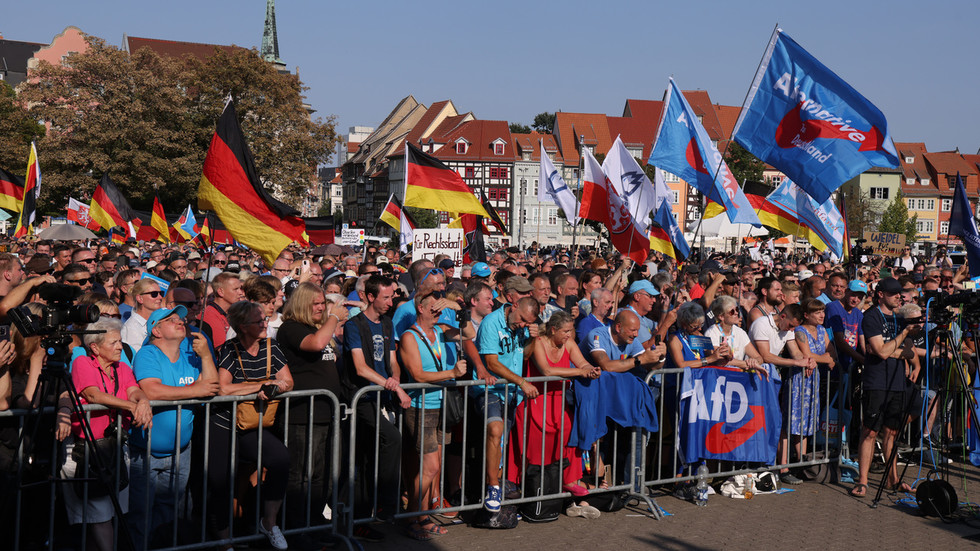
Russian President Vladimir Putin attends the educational marathon at the Victory Museum on Poklonnay (Image: AP)
Russian citizens are paying the price for Vladimir Putin’s war in Ukraine through rising household costs, a weakening ruble, and inflation driven by relentless defence spending, a former Ukrainian central banker has claimed. Kyrylo Shevchenko, the ex-Governor of the National Bank of Ukraine, said Moscow's economy was being stretched to the limit as it pours resources into its military campaign — and ordinary Russians are feeling the consequences.
He said: “The Kremlin is burning through cash at an unsustainable rate to keep its war machine running. The result is skyrocketing inflation, a crumbling rouble, and shrinking consumer power.” Russia's official inflation rate is approaching 8%, but Mr Shevchenko said the real figure could be much higher, especially when it comes to staples like food and utilities. He pointed to a 2024 rise in electricity and gas prices, and warned further increases were likely as the government prioritises defence over domestic welfare.

The cost of potatoes has soared (Image: Getty)
He said: “The state is diverting capital away from infrastructure, healthcare, and education. Everything is being subordinated to military needs. It is a classic war economy — but without the buffers needed to make it sustainable.”
In April, Russia’s finance ministry revealed that more than 30% of federal spending in 2024 would go towards defence and security. That is double the proportion recorded before the full-scale invasion of Ukraine in 2022.
At the same time, oil revenues have fallen sharply, hit by Western price caps and a collapse in global energy prices triggered in part by new tariffs from the United States.
Mr Shevchenko added: “The Kremlin is compensating for lost export earnings by printing money.
???????????? Russia is heading for a painful economic squeeze at home. Moscow plans sharp hikes in utility tariffs: gas, electricity, housing services — set to soar 40% by 2028. Gas bills alone will rise over 76% since the full-scale war began. With real wages stagnating and inflation… pic.twitter.com/jEu9Xc3g5w
— Kyrylo Shevchenko (@KShevchenkoReal) May 2, 2025Invalid email
We use your sign-up to provide content in ways you've consented to and to improve our understanding of you. This may include adverts from us and 3rd parties based on our understanding. You can unsubscribe at any time. Read our Privacy Policy
“That is why the rouble keeps losing value, and why Russians are paying more every month just to live.
“The illusion of economic stability is being maintained only through repression, propaganda, and short-term fixes. But the long-term outlook is bleak.”
Putin’s emphasis on to trade with China and Iran had not fully offset the impact of Western sanctions, Mr Shevchencko stressed, especially in high-tech and financial sectors, with Russia now dangerously exposed to decisions made in Beijing.
Mr Shevchenko said: “There is no such thing as a free lunch. Chinese companies are filling some gaps, yes, but on their terms. Russia is losing leverage, becoming a junior partner in an unequal relationship."
Mr Shevchenko said there was no reason to expect a shift in economic policy either.
He explained: “Putin is doubling down. He is prepared to sacrifice long-term prosperity for military goals. But that comes at a cost — and Russian families are already paying it.”
The longer the war drags on, he warned, the more difficult it will be for Russia to recover, adding: “This is not just a political miscalculation. It is a self-inflicted economic disaster in slow motion.”
Economists at the Kyiv School of Economics say Russia’s defence-led growth is masking deep structural problems, the IMF has warned that surging military spending will squeeze private investment and Oxford Economics has described the rouble as “artificially stabilised” by strict capital controls.
Meanwhile, Moody’s has flagged the growing risk of long-term fiscal instability inside Russia.

 14 hours ago
2
14 hours ago
2










 English (US) ·
English (US) ·